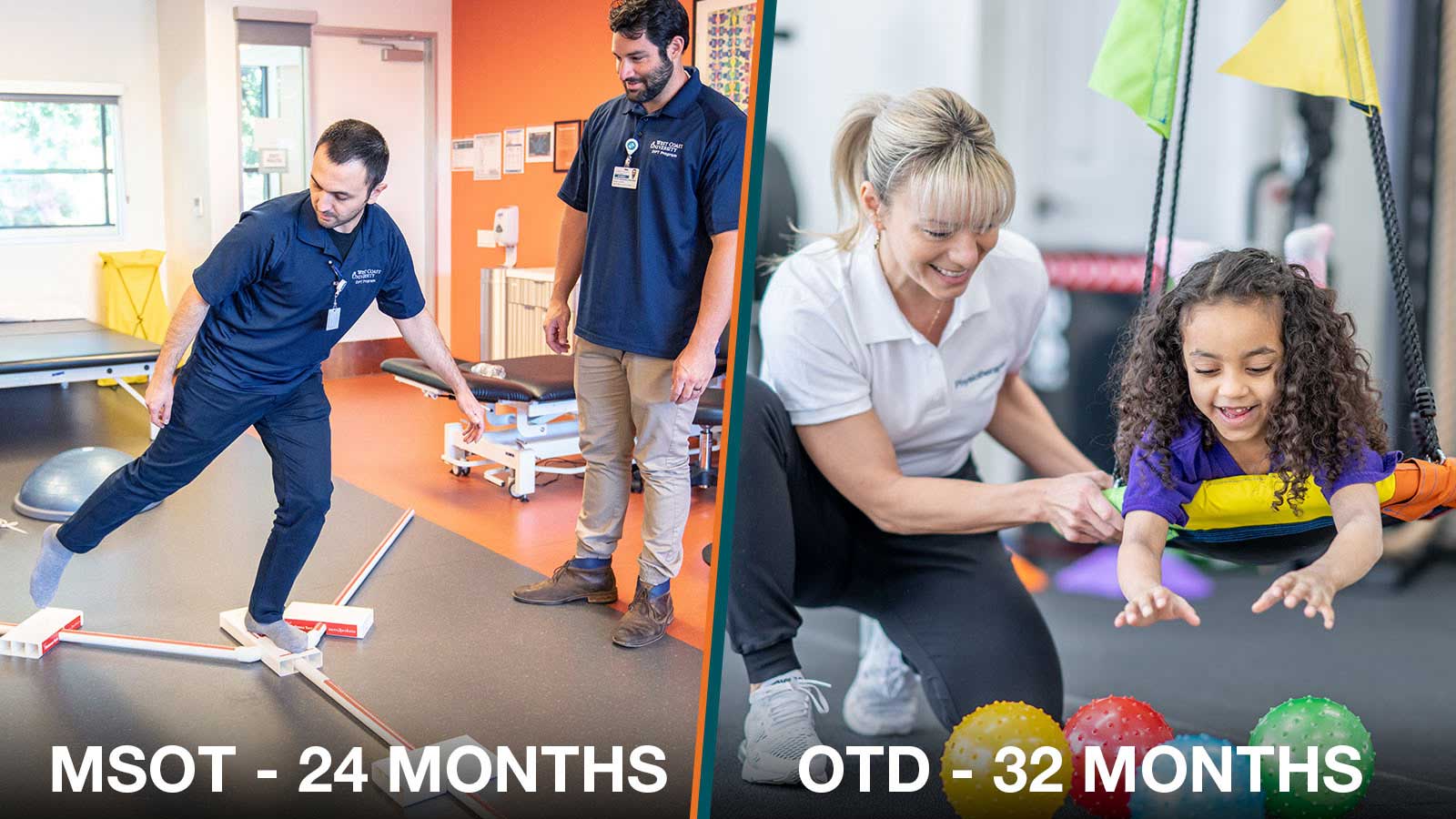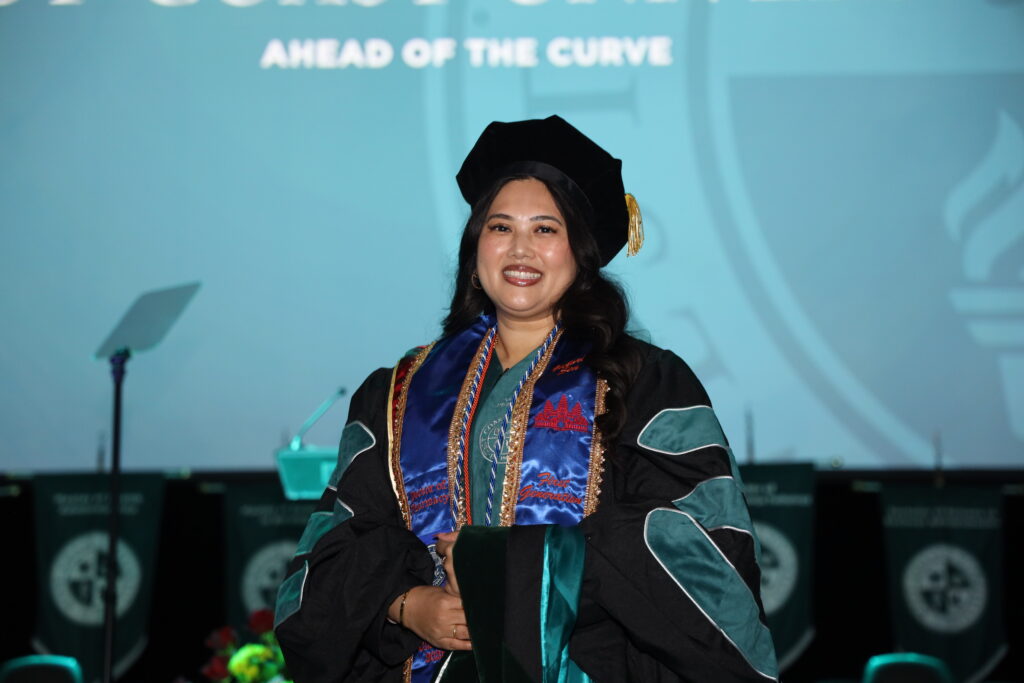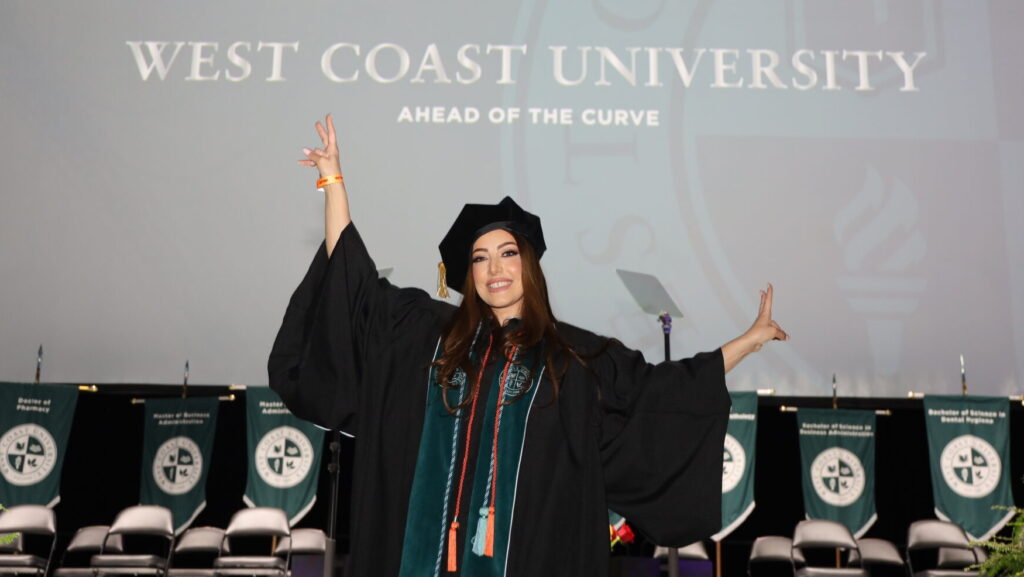Occupational therapy (OT) is a rewarding healthcare profession that focuses on helping people of all ages participate in the activities that are important to them. Whether it’s a child struggling with fine motor skills, an adult recovering from a stroke, or an elderly person facing challenges with daily living, occupational therapists work to improve their clients’ quality of life by giving them the physical, emotional, and social skills needed to succeed.
If you’re passionate about helping others achieve their full potential and making a positive impact in your community, studying occupational therapy through an MSOT or OTD program might be the perfect career path for you.
You might be wondering how long occupational therapy school is. How many years will you have to devote to your education before you can practice? This can vary broadly. In general, an OT degree will typically take between two and four years to complete. However, the specific length of your degree will depend on the school you choose as well as whether you opt for a master’s or doctorate degree. Other factors to consider include whether you already have a bachelor’s degree and whether you need to complete prerequisites before starting.
Keep reading to get a better estimate of just how long it could take you to become an occupational therapist!
Choosing Your Path: MSOT vs. OTD
A Master of Science in Occupational Therapy (MSOT) and an Occupational Therapy Doctorate (OTD) are both advanced degrees that qualify individuals for their OT licensure exam. However, they differ in their scope, depth, and the type of roles they prepare graduates for.
MSOT: A Foundation for Practice
An MSOT primarily prepares graduates for direct patient care in various settings. According to the U.S. Bureau of Labor Statistics, occupational therapists often work in hospitals, OT offices, schools, home health services, or nursing care facilities. A master’s degree program usually take 2 to 3 years to complete and emphasizes clinical skills, assessment techniques, and evidence-based practice. You can view our MSOT curriculum online.
OTD: A Scholarly Deep Dive
While an OTD also prepares graduates for clinical practice, a doctorate provides more in-depth preparation for scholarship and research. It typically provides a broader preparation for students who eventually want to become leaders, educators, or researchers in the field of OT. Check out the OTD curriculum.
Additionally, an OTD degree includes a capstone project that serves as a culminating experience, enabling students to take ownership of a large project through the phases of research, development, implementation, evaluation, and dissemination. Read more about capstone projects at WCU.
How Long Is Occupational Therapy School at WCU
West Coast University offers both MSOT and OTD degrees. Here is a comparison of the two programs that can help you understand which option is right for you.
| MSOT | OTD | |
| Program Length | 24 months | 32 months |
| Fieldwork Requirement | Fieldwork Level I: 3 credits Fieldwork Level II: 24 credits | Fieldwork Level I: 3 credits Fieldwork Level II: 24 credits |
| Capstone Project | X | ✔ |
Other Factors to Consider
In addition to program length, there are a few other factors that might affect how long it takes you to become a licensed occupational therapist. While researching programs, consider the following:
- Prior Education and Prerequisites
Do you meet all requirements in order to start the program right away? If you don’t, you might need to take some courses before you can start your OT degree. Many programs will require a 4-year bachelor’s degree. Common majors that prepare students for an OT education include kinesiology, biology, or psychology. However, regardless of your major, you will have to ensure you’ve completed any prerequisite courses. For example, if you wanted to apply to WCU’s MSOT program, you would have to ensure you’ve taken classes in areas such as human anatomy, physiology, and human development. You can find all our prerequisites online. - Full-Time vs. Part-Time Schedules
Some OT programs will allow you to choose between being a full-time or part-time student. Part-time students will typically have a lighter course load per term, spreading out necessary coursework over a longer period of time. This is a great option if you work or juggle different responsibilities. However, it also extends the amount of time you need to complete your degree. - Routes for Students Without Bachelor’s Degrees
While OT programs typically require a bachelor’s degree, some schools offer routes for students who do not have an undergraduate degree. For example, some schools combine a bachelor’s and master’s into one program. This could be a 6-year program that starts with bachelor-level classes and immediately segues into graduate courses. At West Coast University, we offer a pathway for occupational therapy assistants to earn their master’s degree without having to pursue a bachelor’s degree first. This allows students in the OT field to leverage their experience and pursue their education.
Breaking Down Your OT Degree
Now that you know about how long you’ll be in school, you should know what you’ll be doing during those years. Occupational therapy school might be challenging, but it’s also a rewarding and fulfilling experienced that’s focused on helping you become a capable and compassionate healthcare practitioner.
Here’s what you can expect from your WCU education:
- Didactic Coursework
Study the theory and science behind occupational therapy in a traditional classroom setting. This includes 1-2 days per week of online classes for flexibility.
- Simulation Experiences
Practice skills and gain confidence in a safe environment. Our campus at the Center for Graduate Studies includes a simulation center with an apartment set-up similar to what you’ll encounter on the job. - Advanced Fieldwork Experiences
Both our MSOT and OTD programs include 24 credits of Fieldwork Level II experience to provide real-life experience.
After Graduation: One Final Step
Even after you complete your OT degree, you have one vital step left before you become an occupational therapist: Getting your license!
Graduates of WCU’s OT programs are eligible to sit for the national certification exam.
The National Board for Certification in Occupational Therapy (NBCOT) administers the exam to certify occupational therapists, ensuring that practitioners meet the knowledge standards needed to provide quality care for clients. Most states require licensure to practice, and state licenses are usually based on the results of the NBCOT certification exam. According to NBCOT, students report spending about 6 weeks studying and preparing for the exam.
Additionally, maintaining your occupational therapist license might involve keeping up with your education, including staying aware of emerging trends and research. This is done through Continuing Education Units (CEUs). The American Occupational Therapy Association (AOTA) provides some helpful information about CEUs.
OTD vs. Other Healthcare Fields
You might also be wondering how long is occupational therapy school in comparison to other healthcare fields. Program lengths can vary widely from one university to the other. As a quick guide, here are the different program lengths for some of the graduate healthcare degrees offered at West Coast University.
| Program | Length (in months) |
| Master of Physician Assistant | 24 |
| Master of Speech-Language Pathology | 20 |
| Master of Science in Clinical Mental Health Counseling | 29 |
| Master of Science in Occupational Therapy | 24 |
| Doctor of Pharmacy | 33 |
| Doctor of Physical Therapy | 36 |
| Occupational Therapy Doctorate | 32 |
Degree length should only be one small factor you consider when it comes to choosing a healthcare field. You should also research the daily tasks you’ll be performing, work environment, and patient populations. Explore all of our programs!
Things to Remember
As you consider and research different occupational therapy programs, it’s important to remember that program length can vary greatly depending on what degree and university you choose. At West Coast University, you can graduate in as little as 24 months with our MSOT program or as few as 32 months with our OTD program.
If you need more help deciding on an occupational therapy program, please don’t hesitate to reach out to one of our knowledgeable advisors by attending an information session. Reserve your spot now!
Regardless of which option you choose, occupational therapy is a rewarding and fulfilling field! A quality OT preparation helps uniquely position you to make a real difference in your clients’ lives. Learn more about occupational therapy, including reading inspiring stories from our students and alumni on our blog!
WCU provides career guidance and assistance but cannot guarantee employment. The views and opinions expressed are those of the individuals and do not necessarily reflect the beliefs or position of the school or of any instructor or student.



